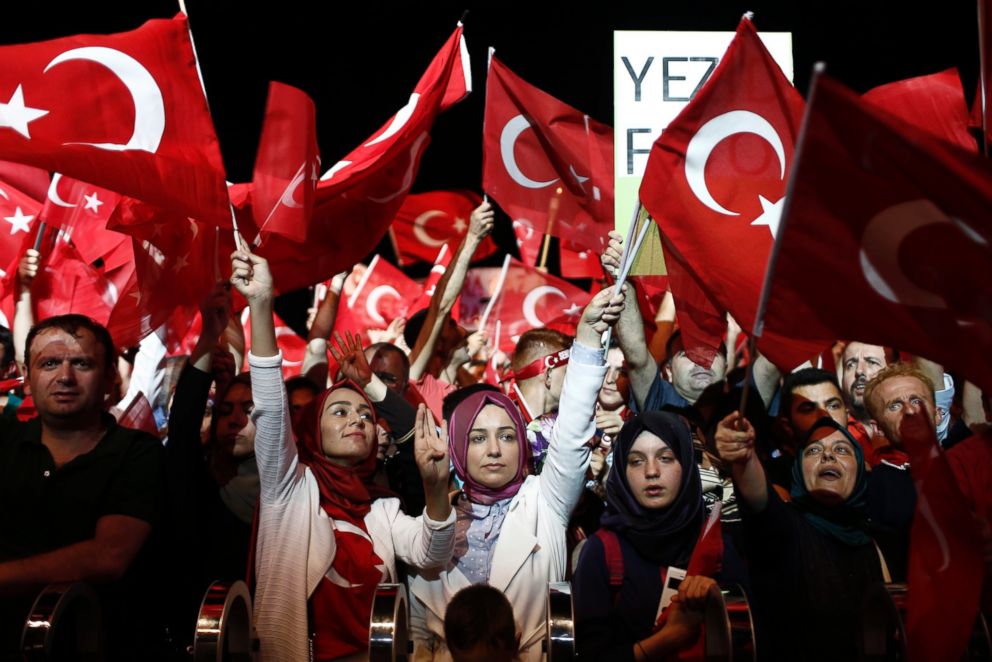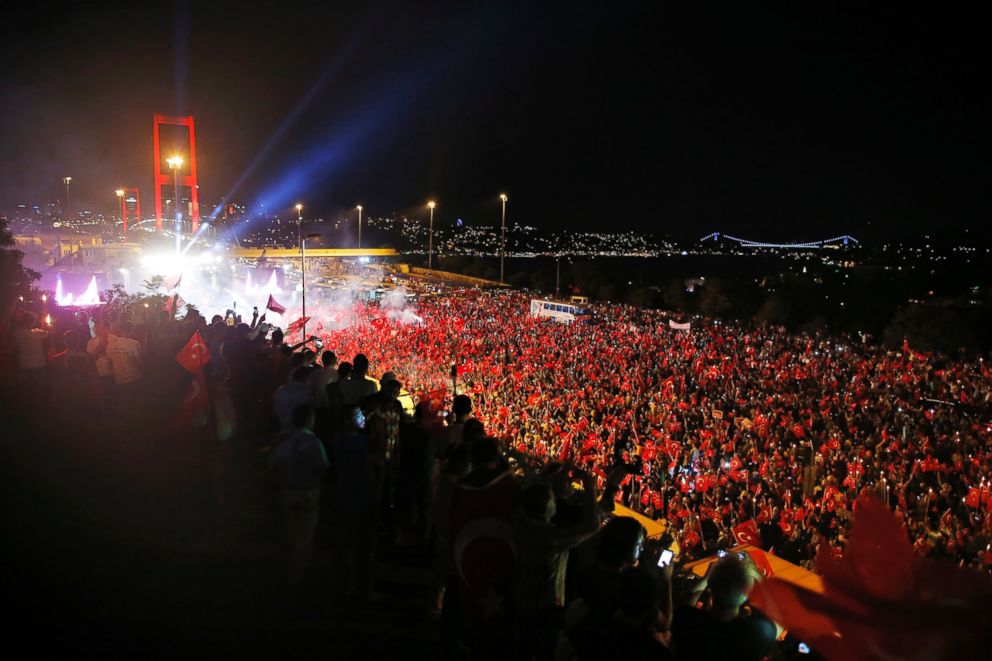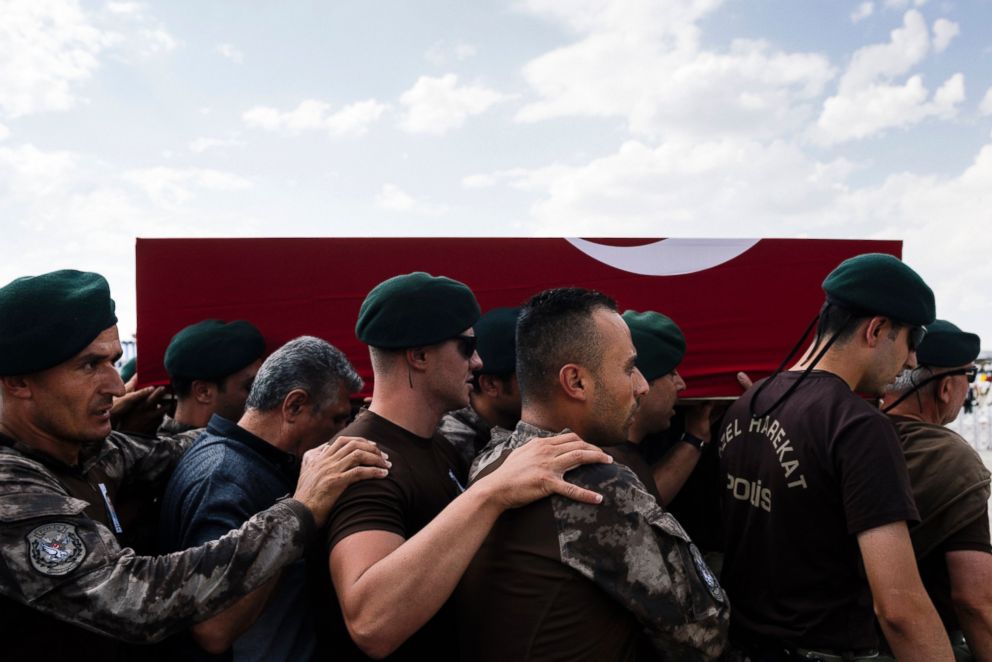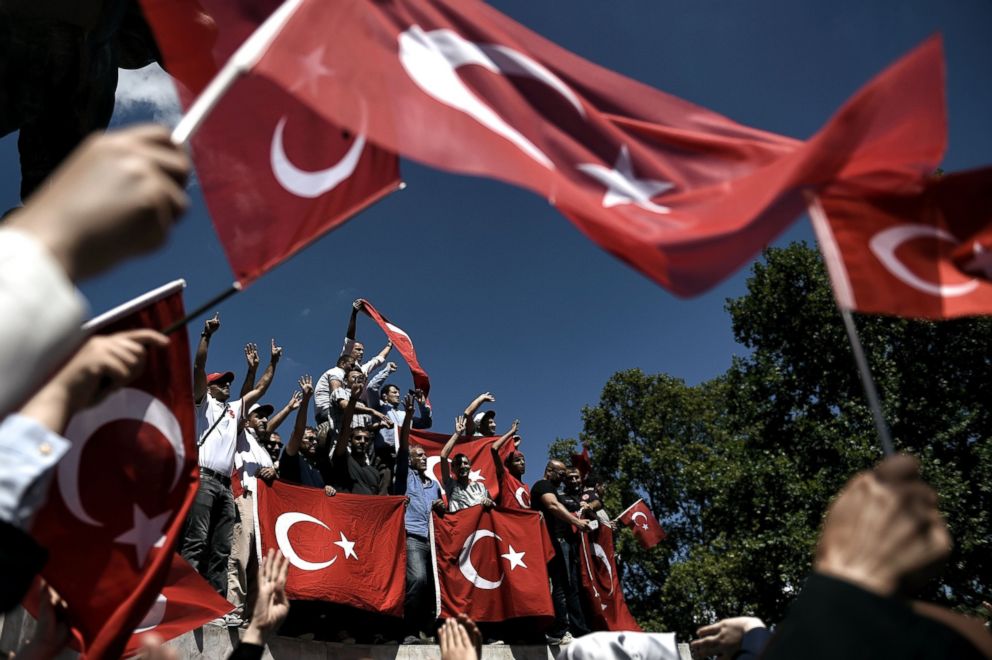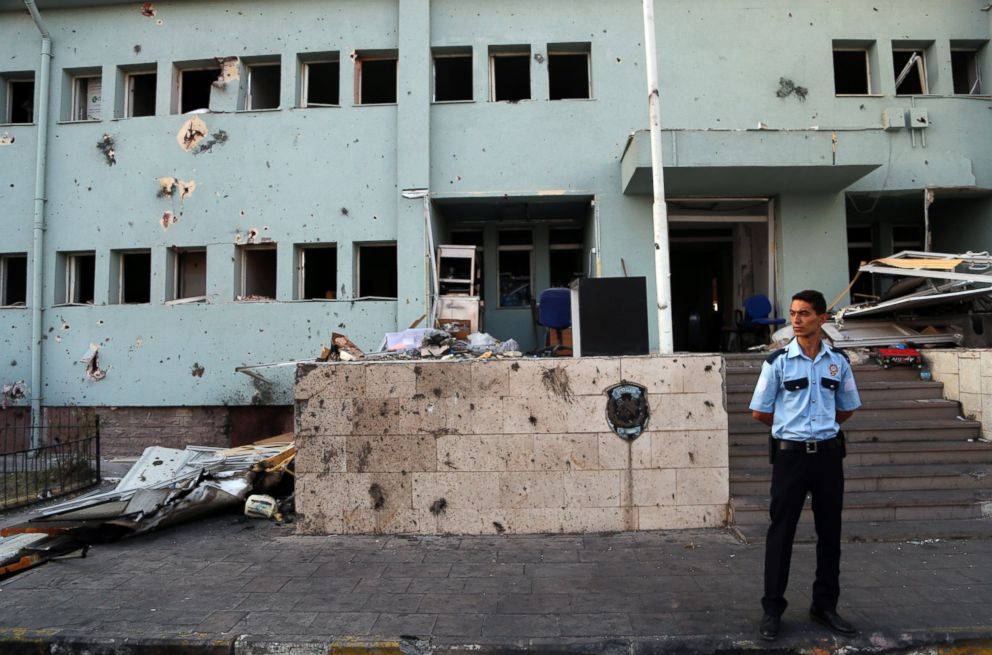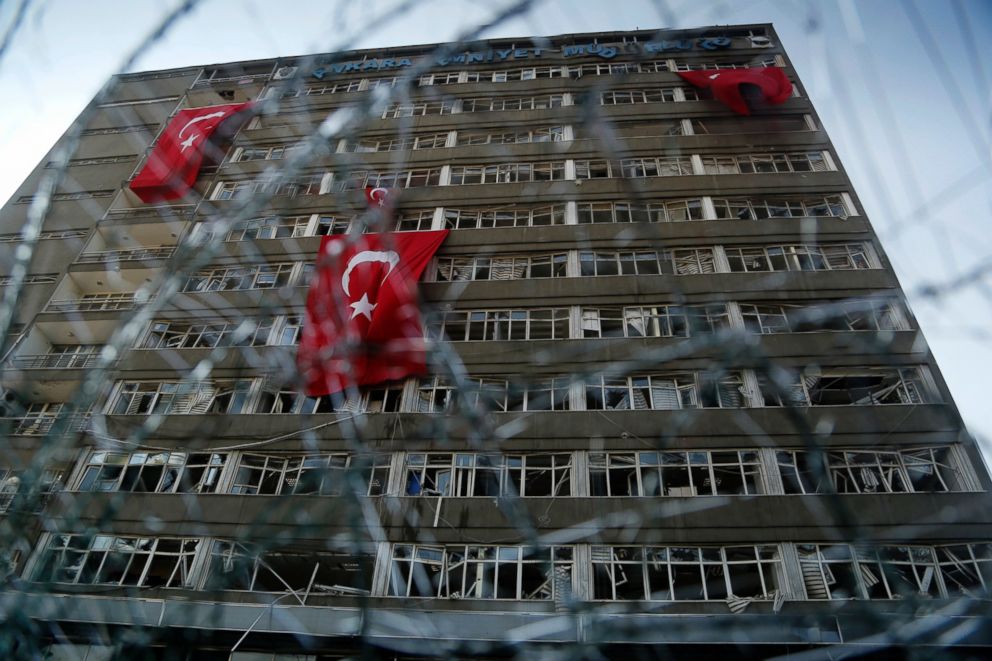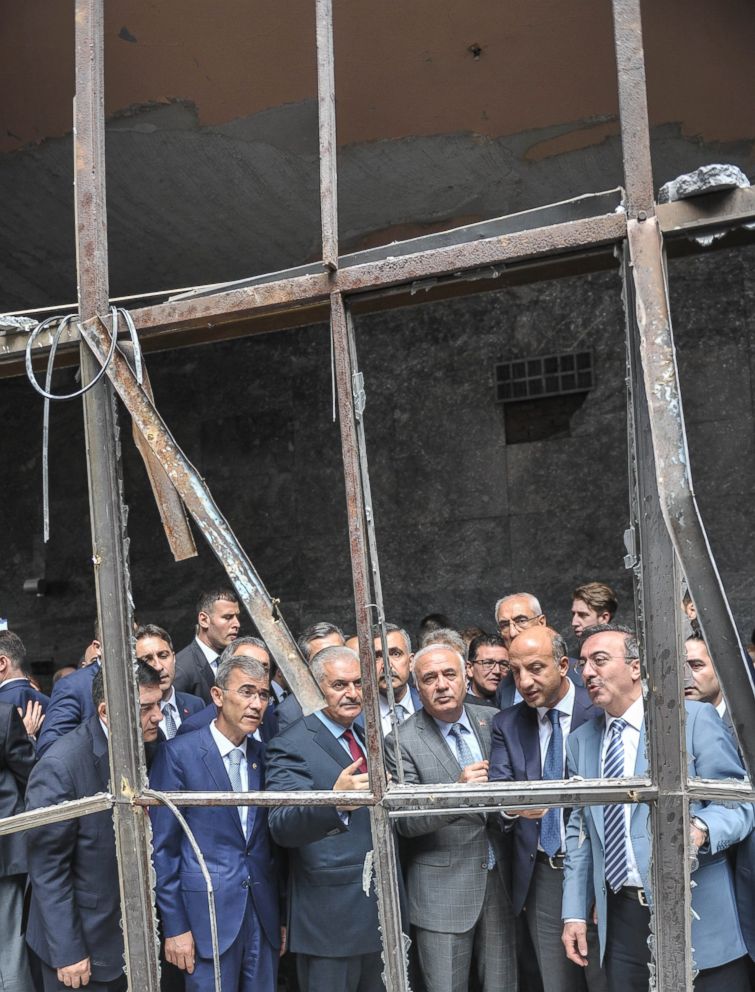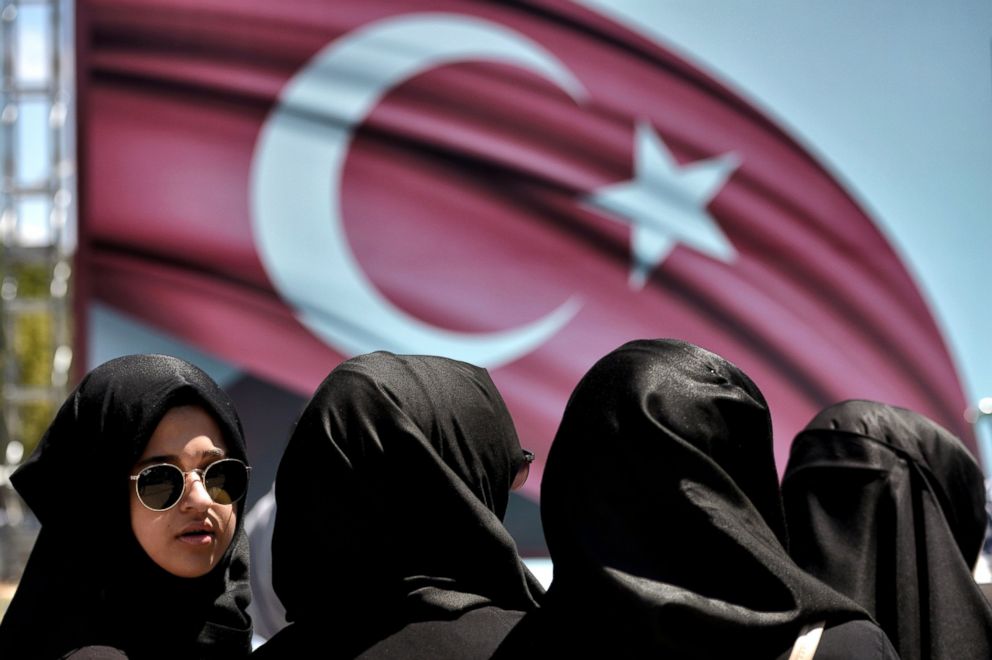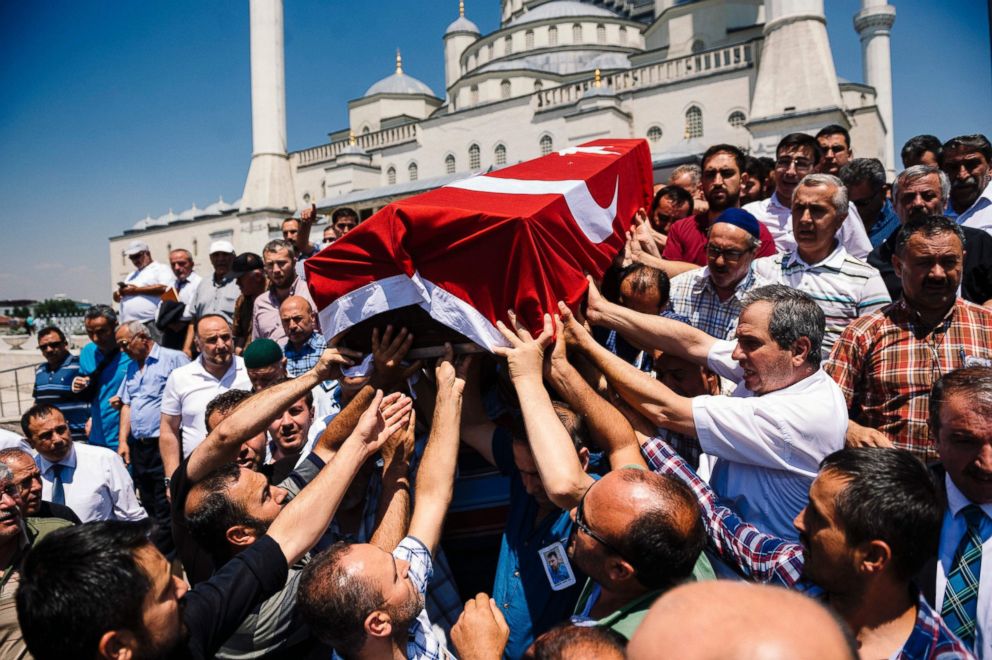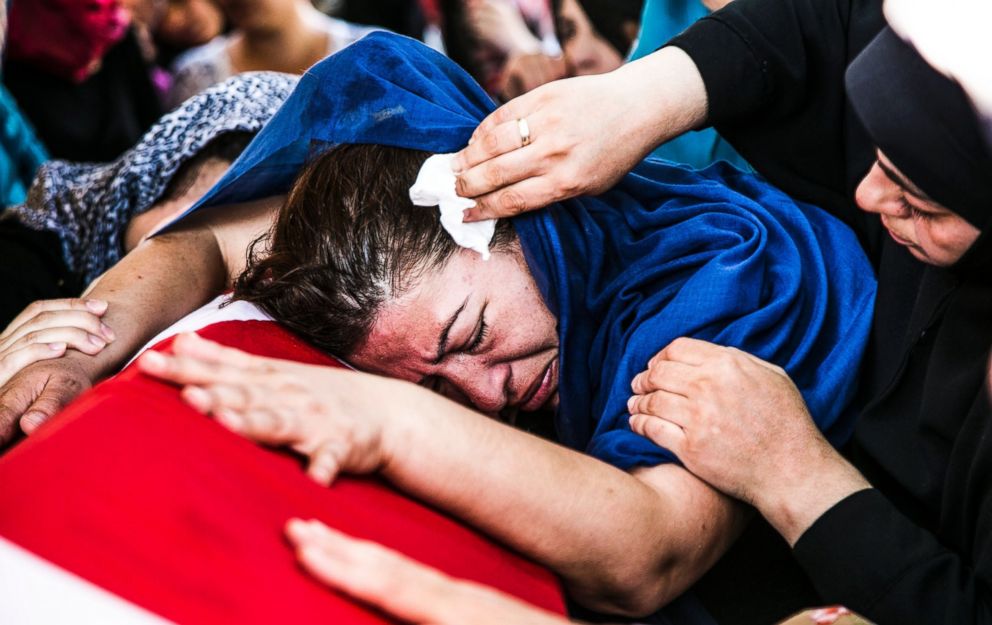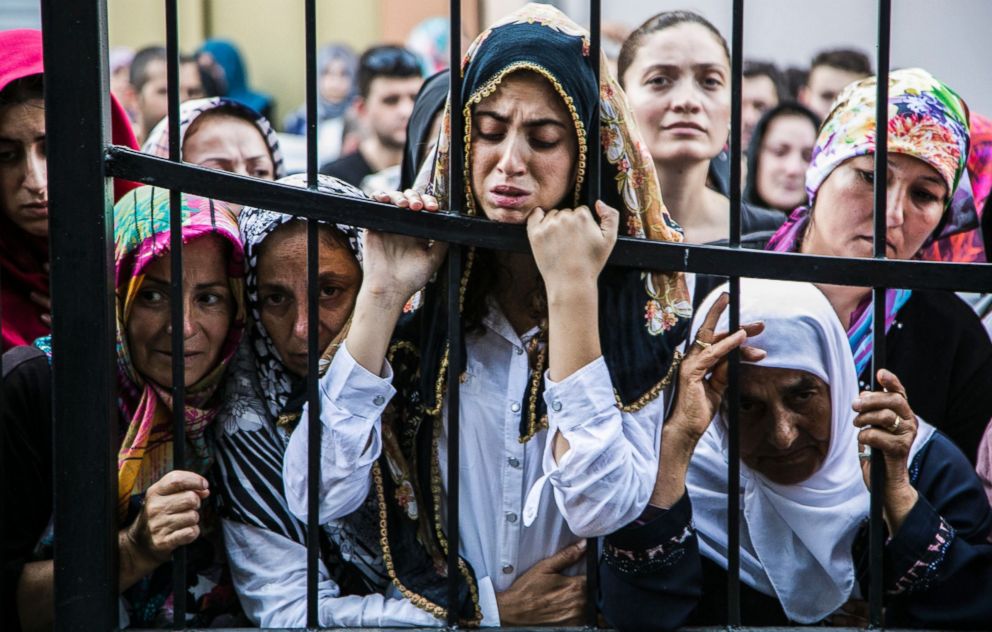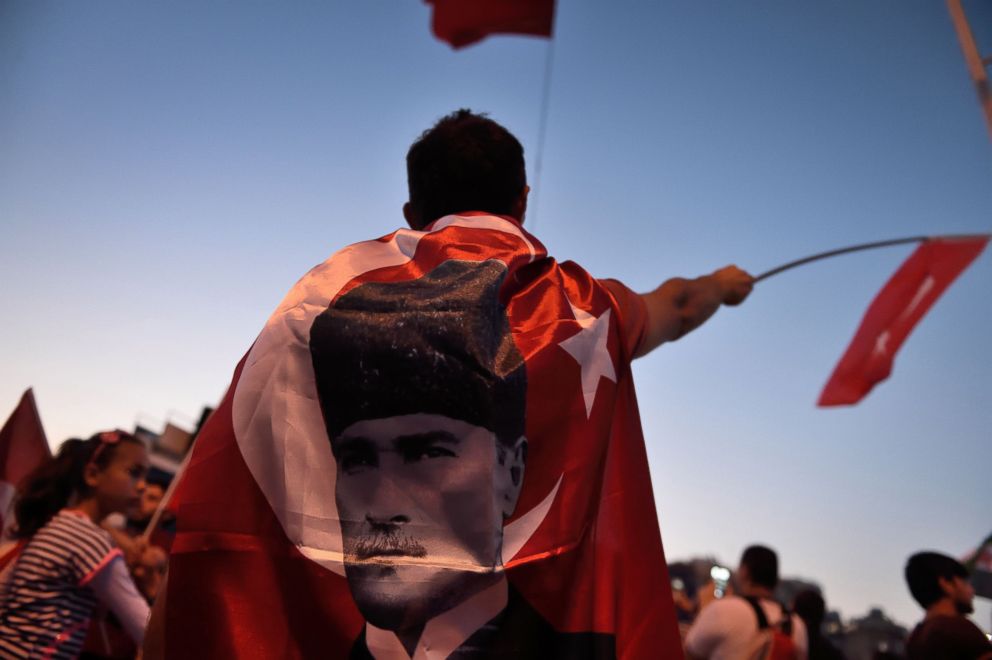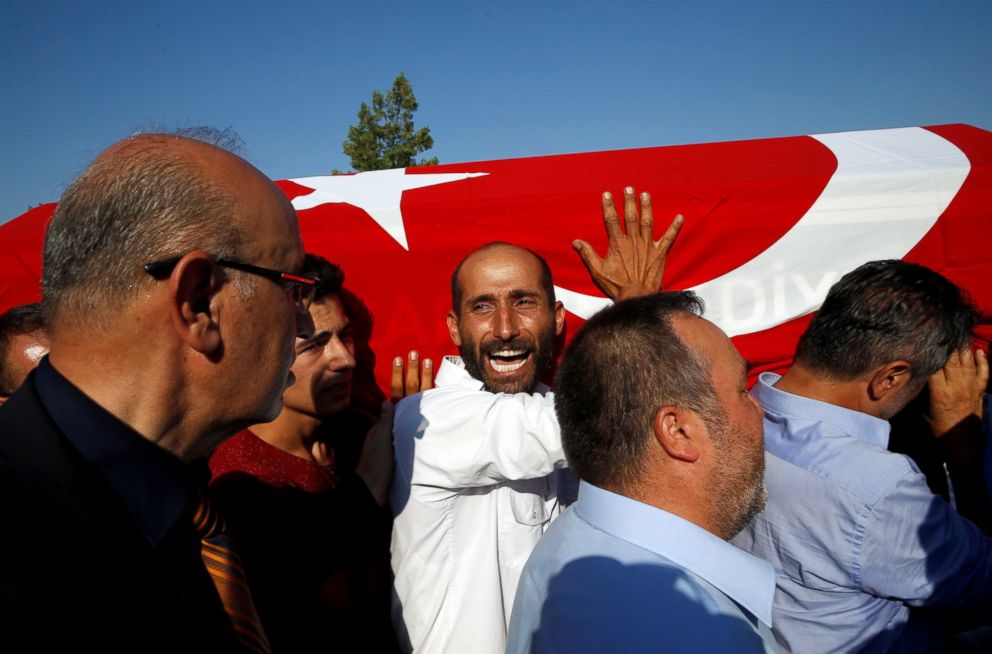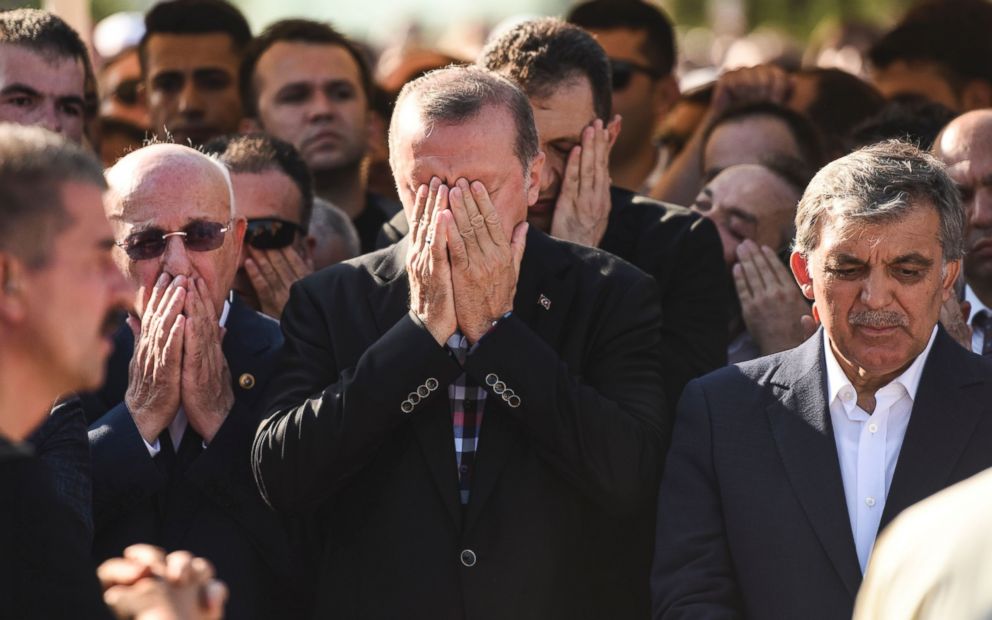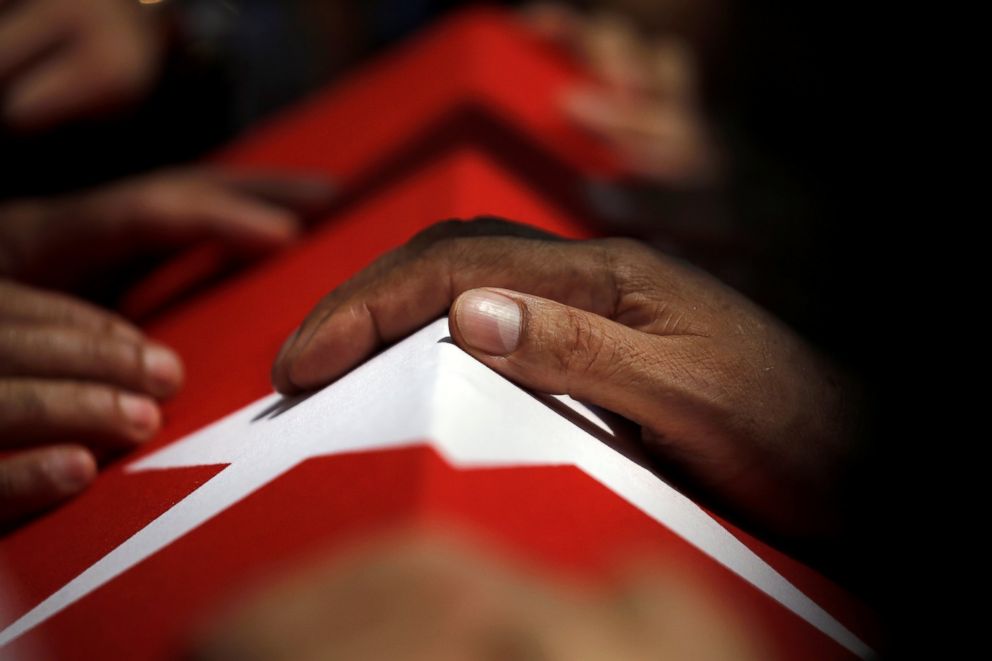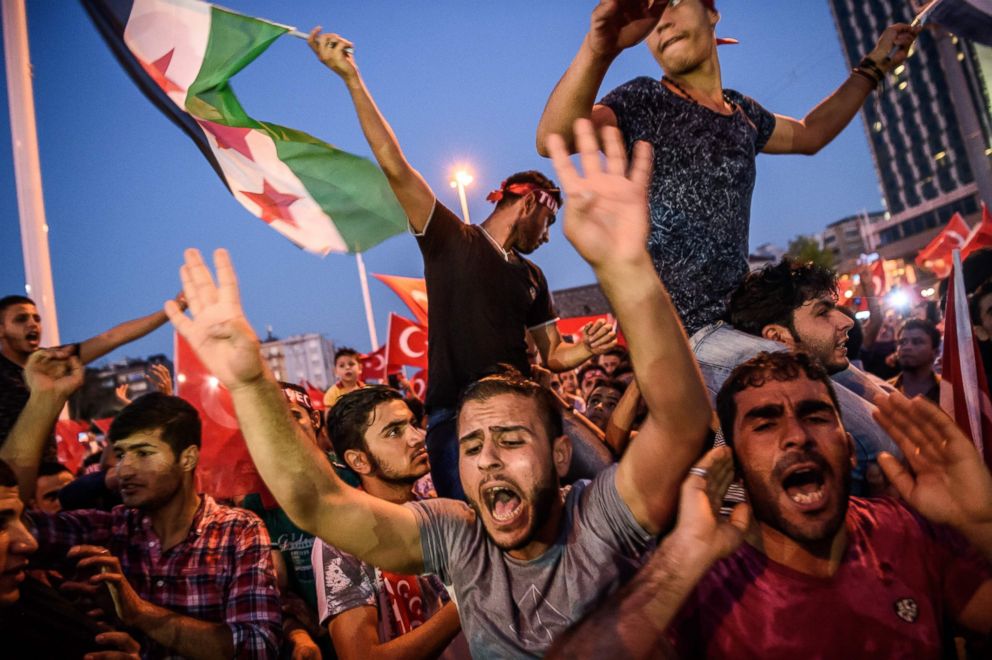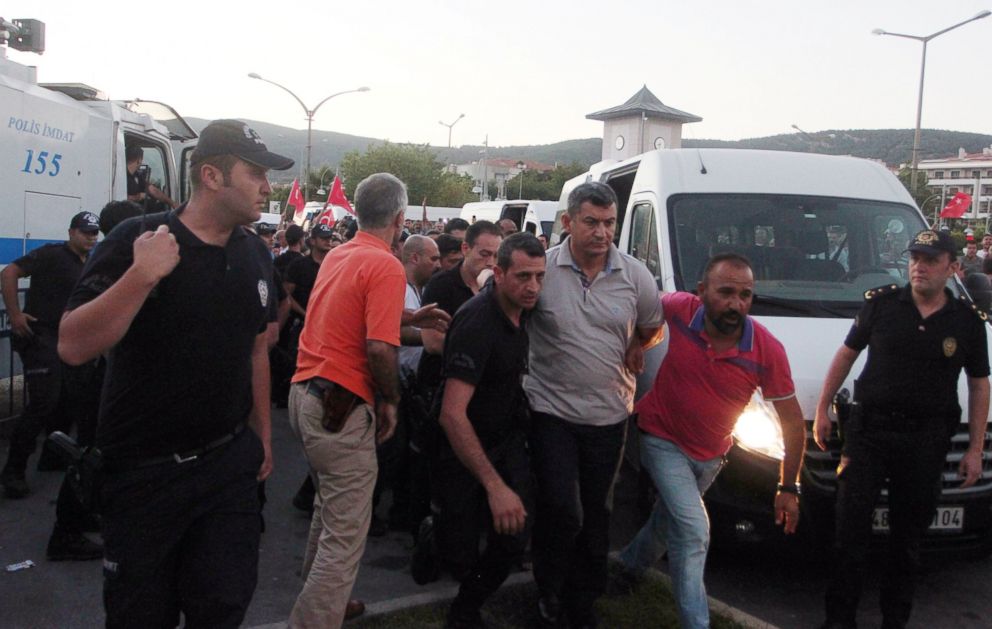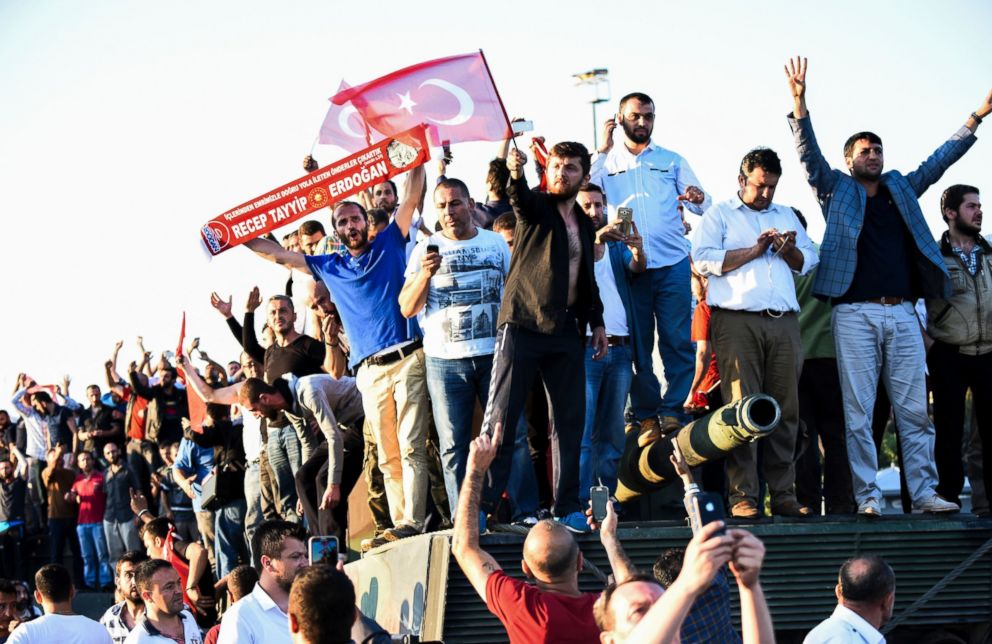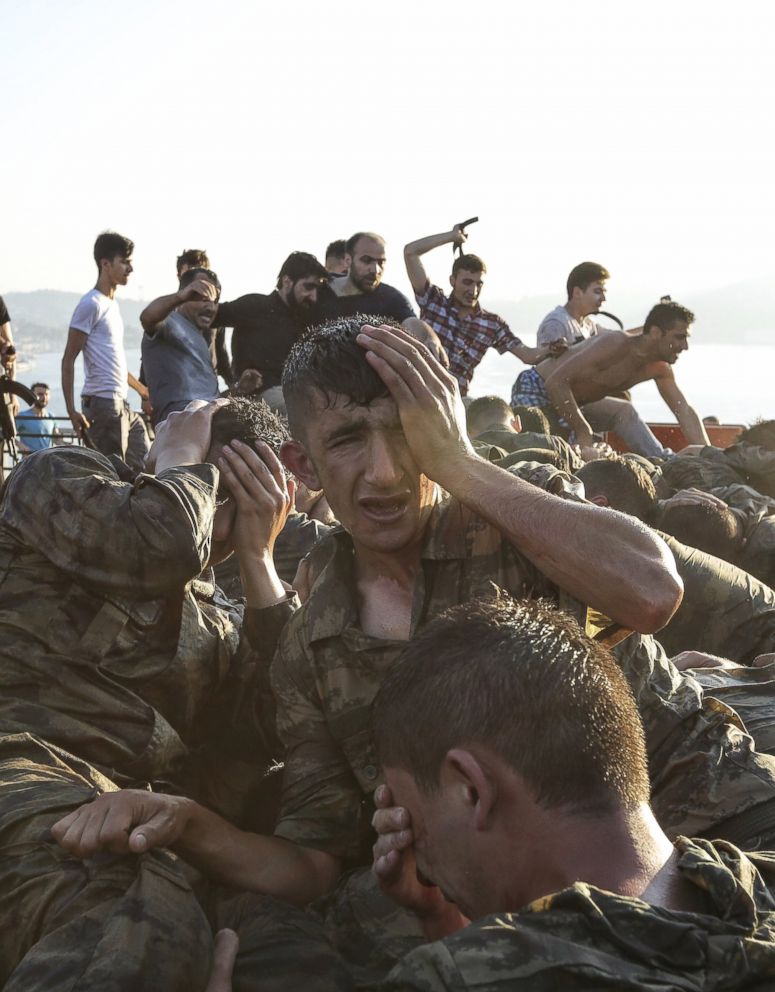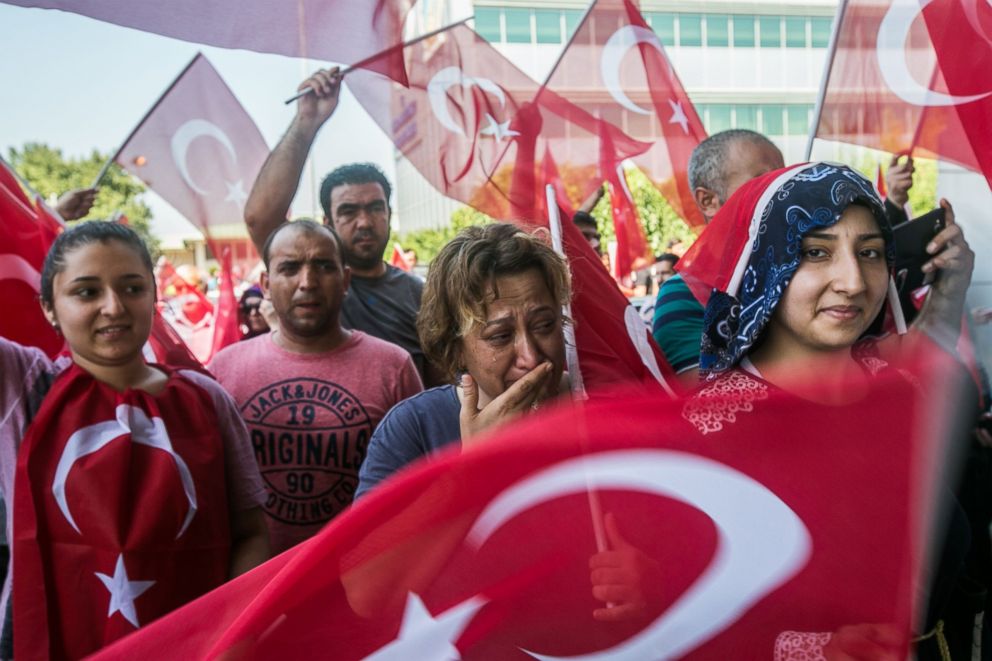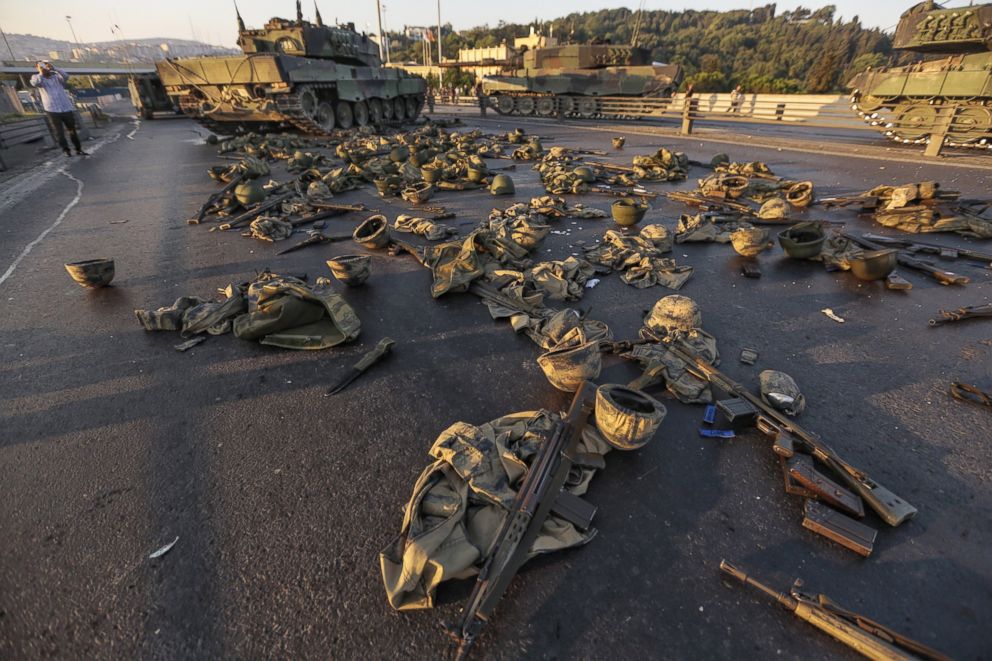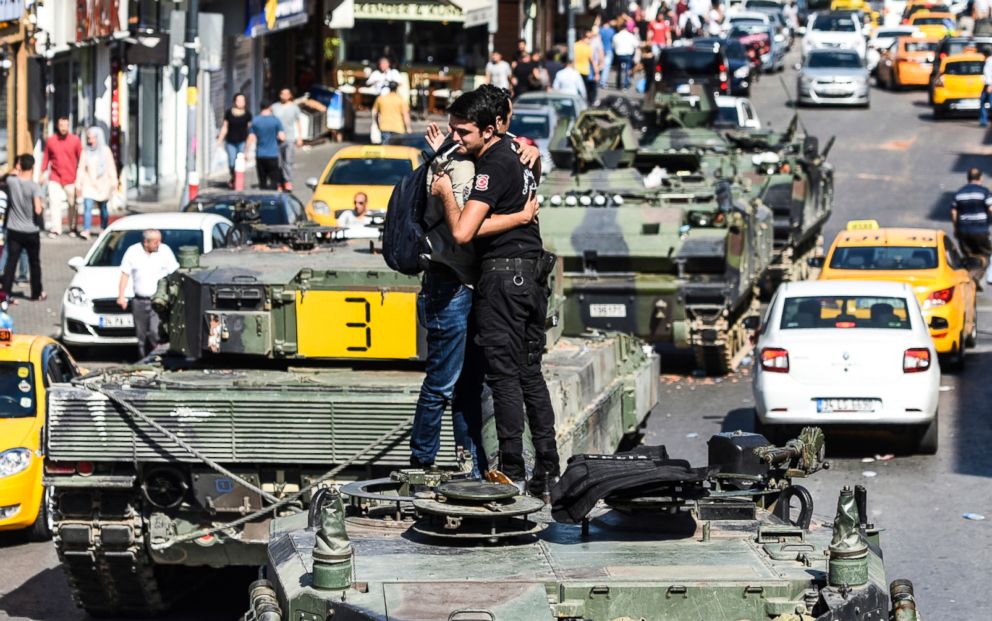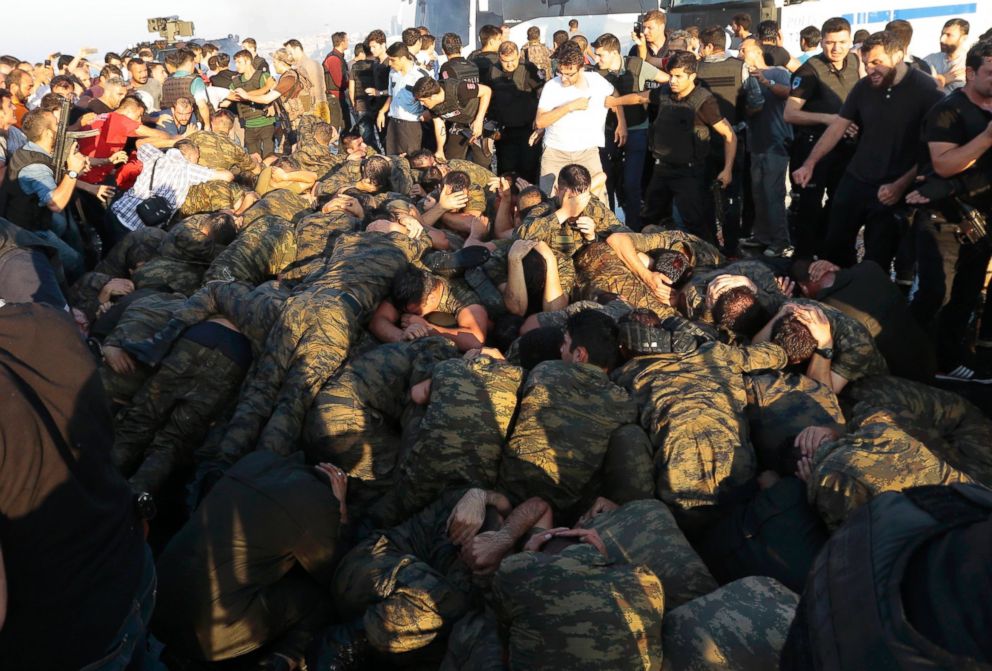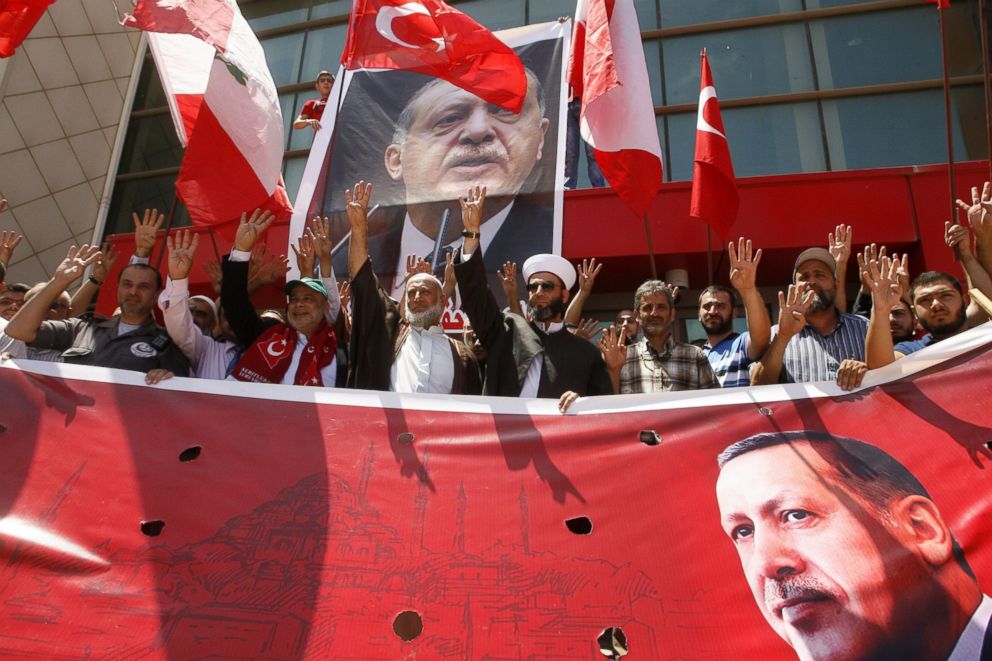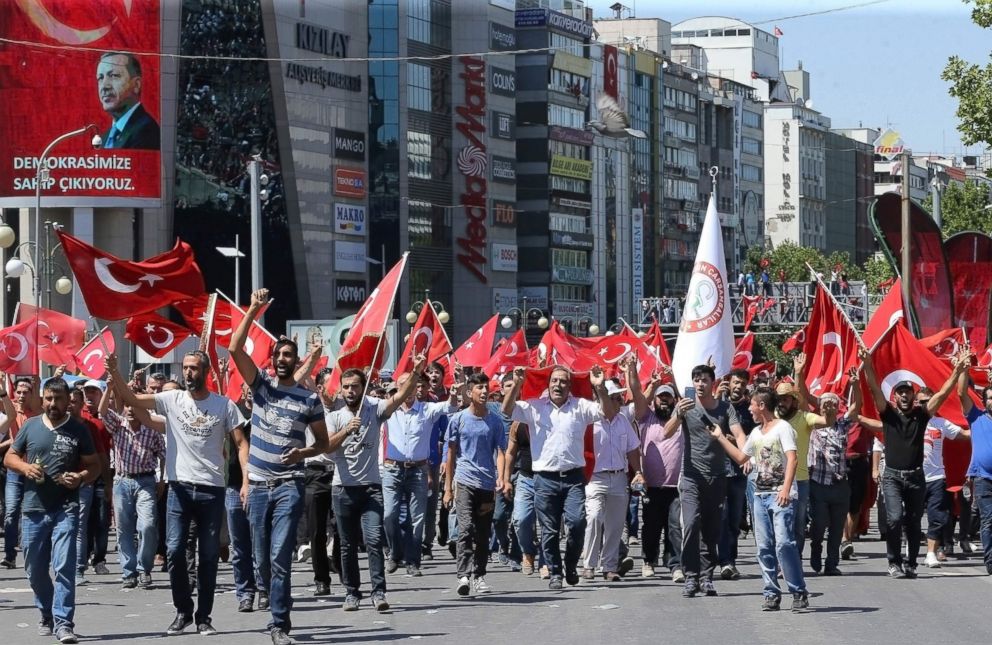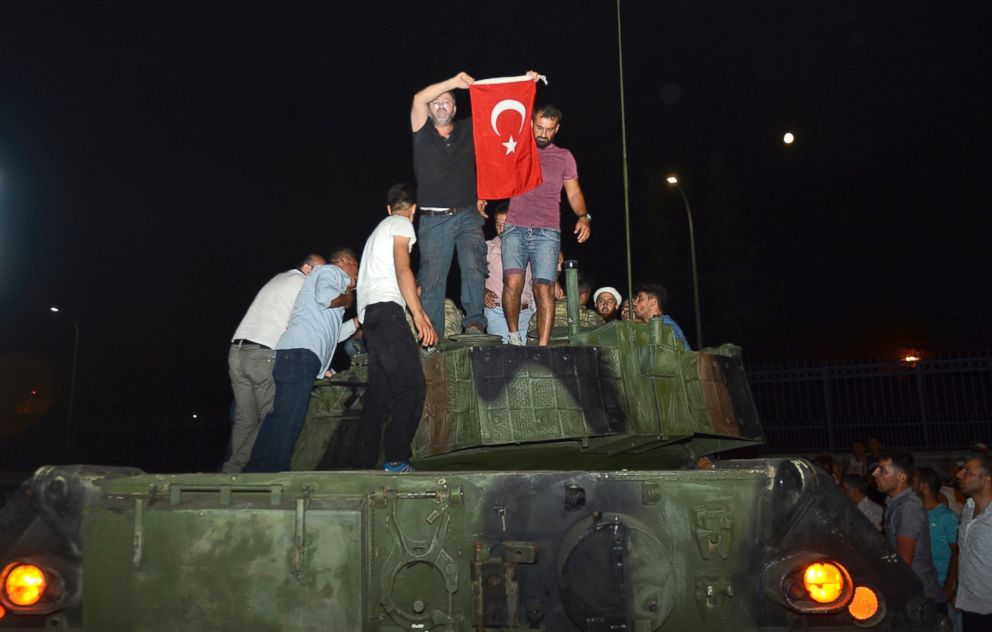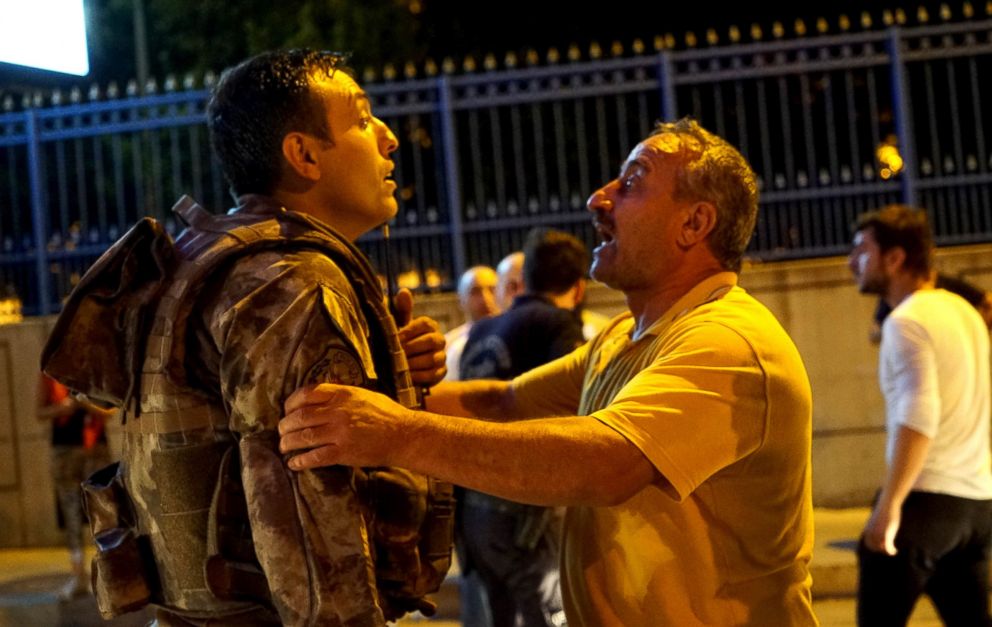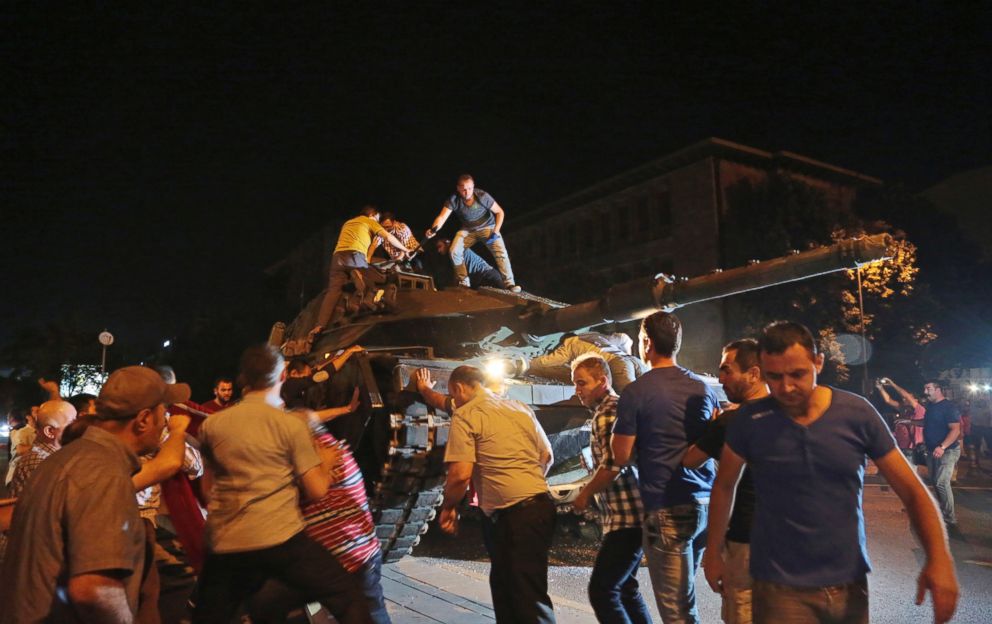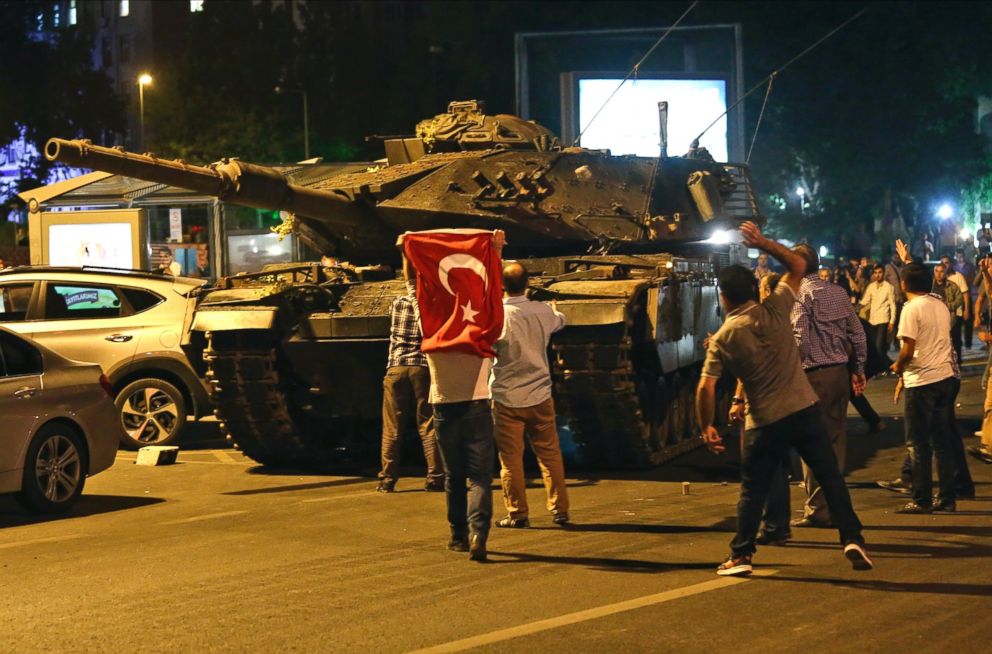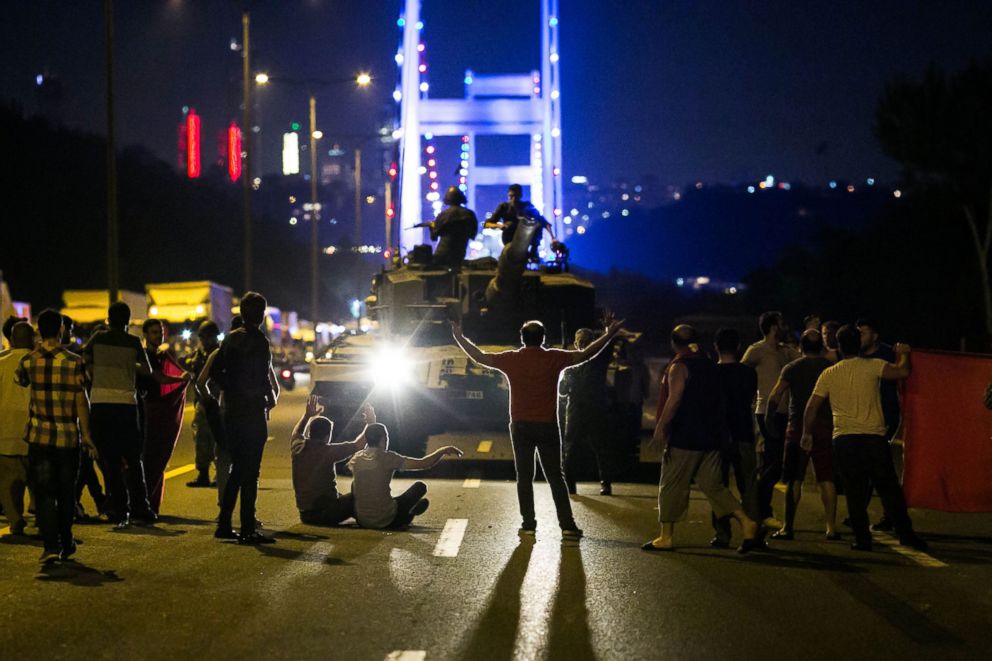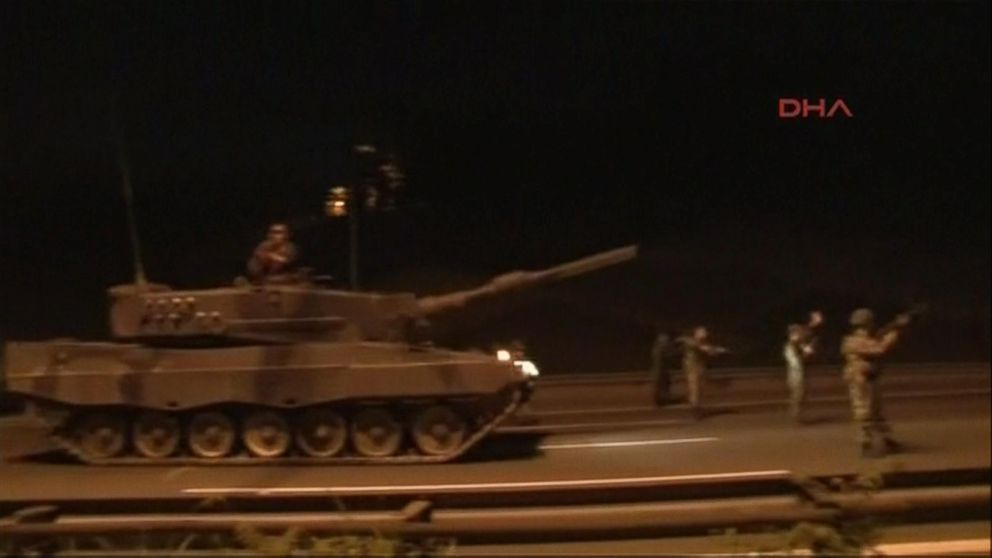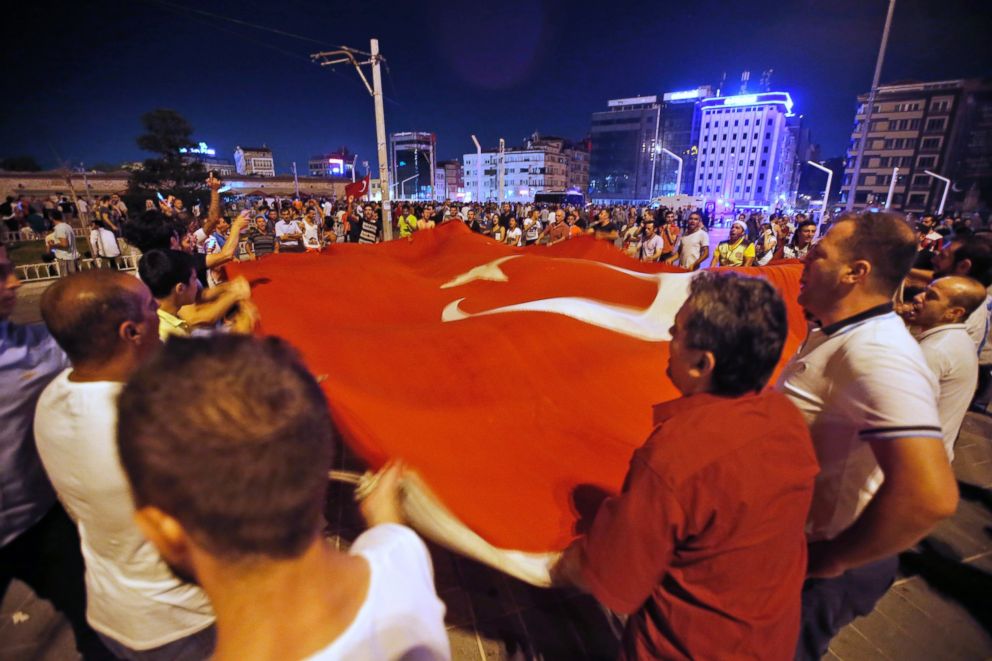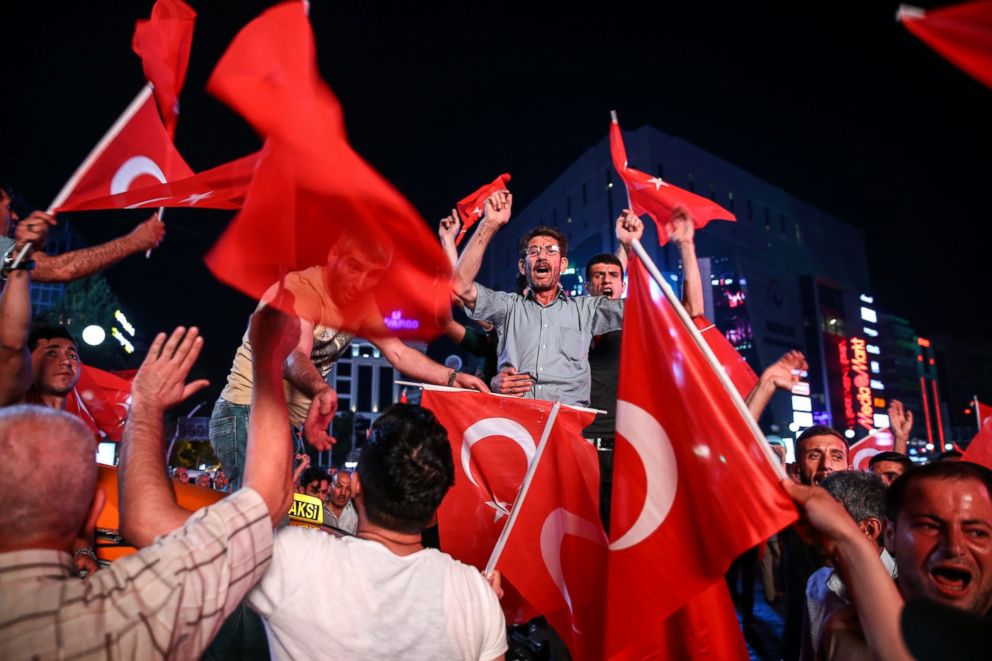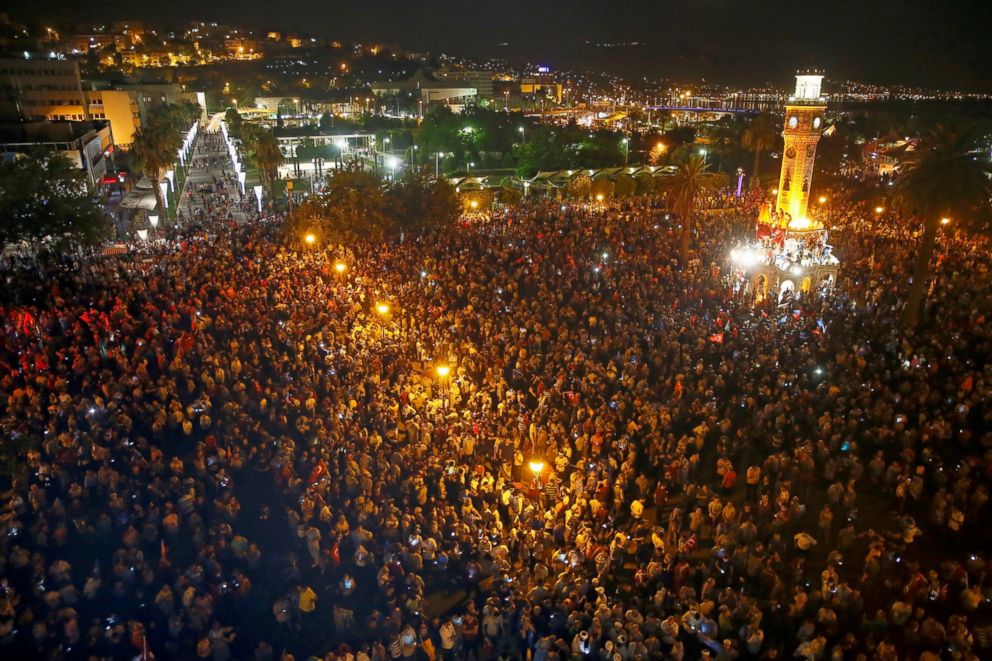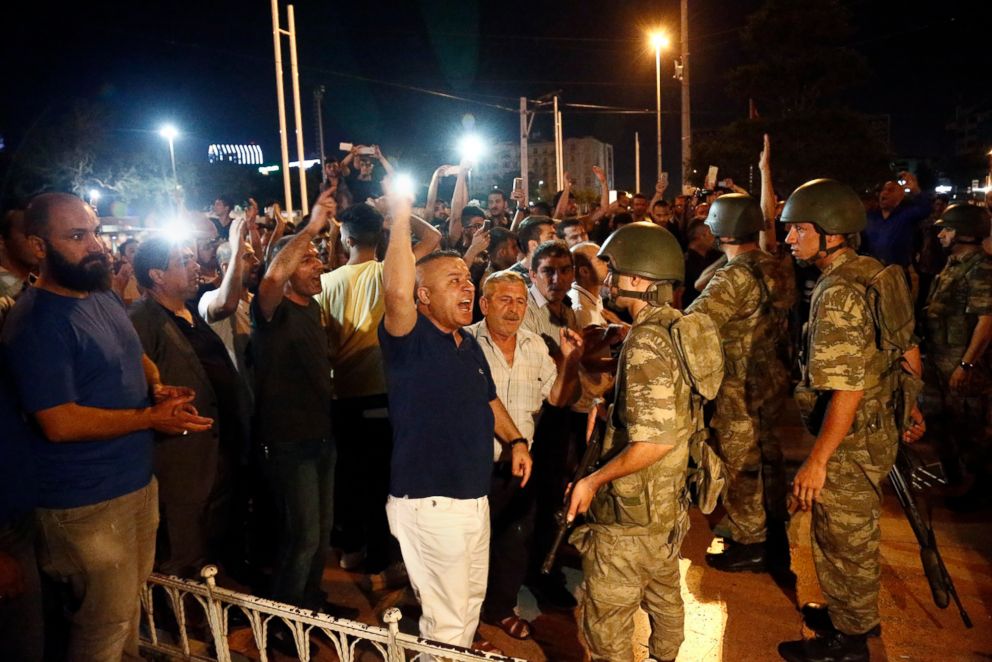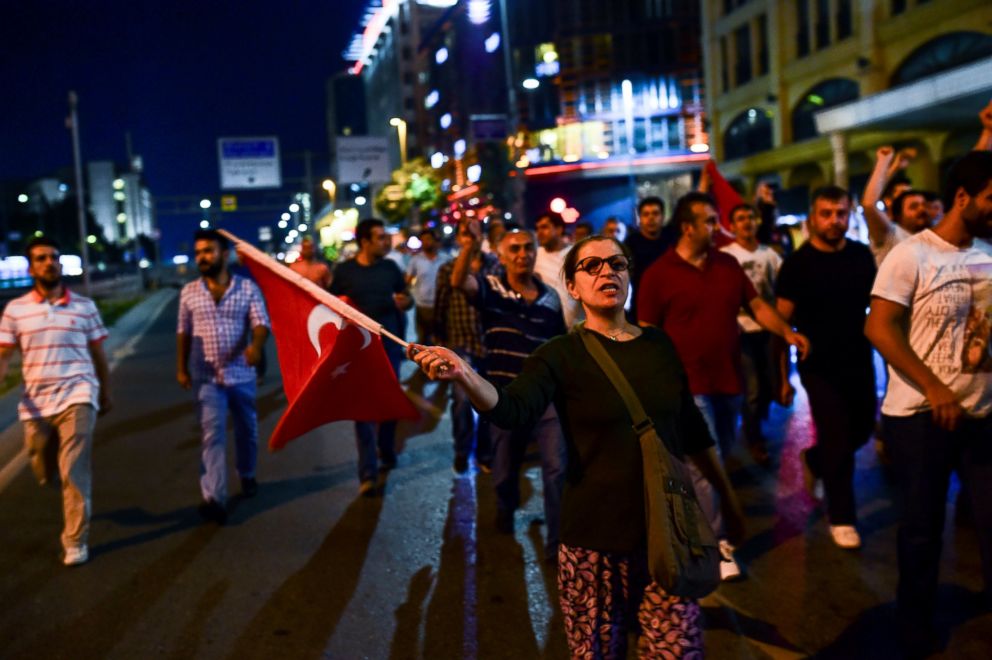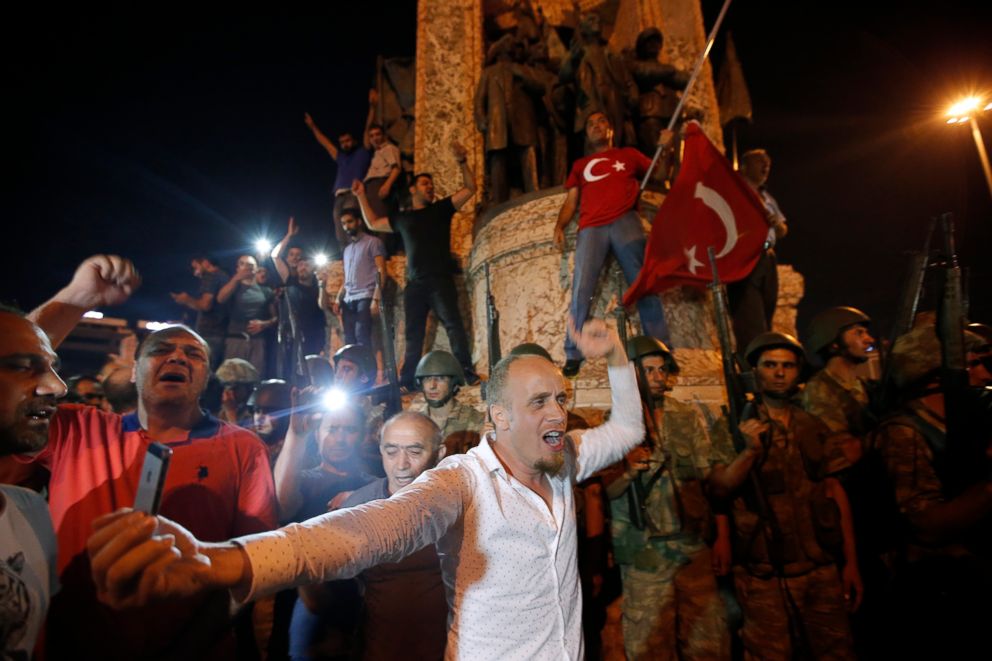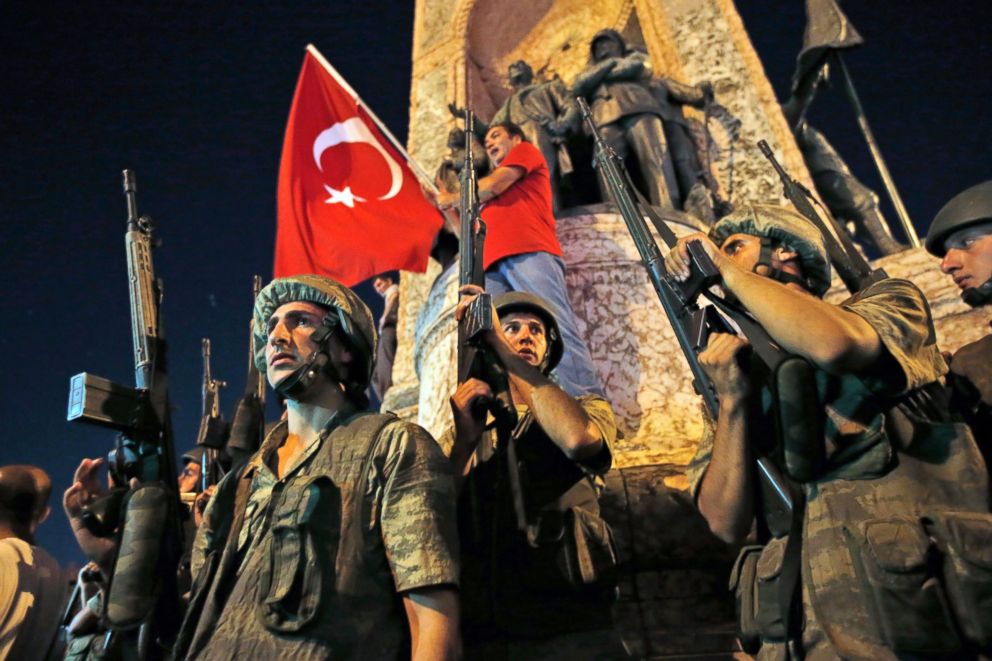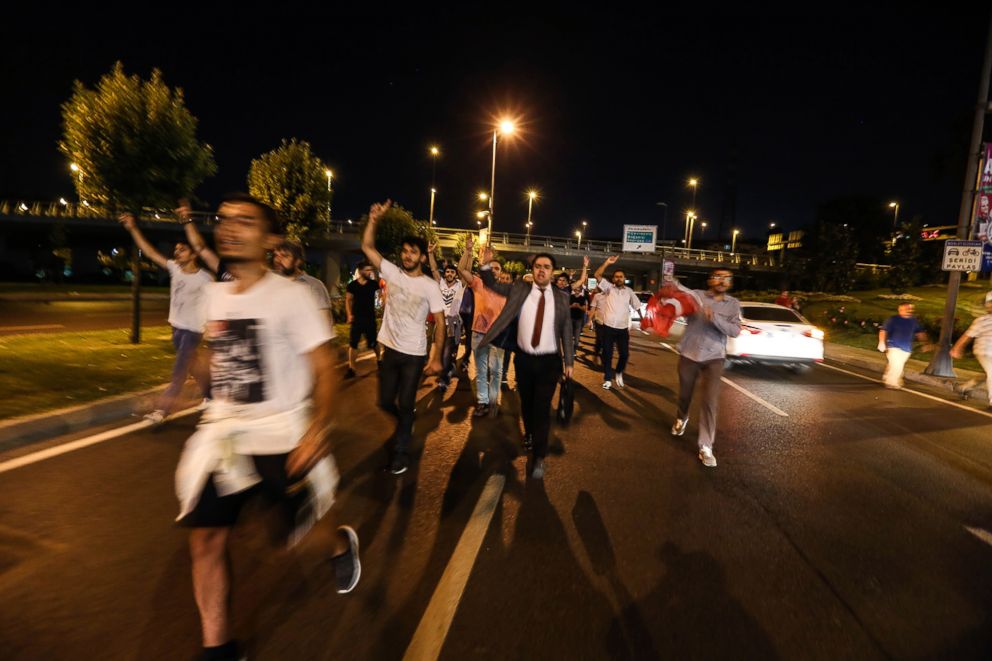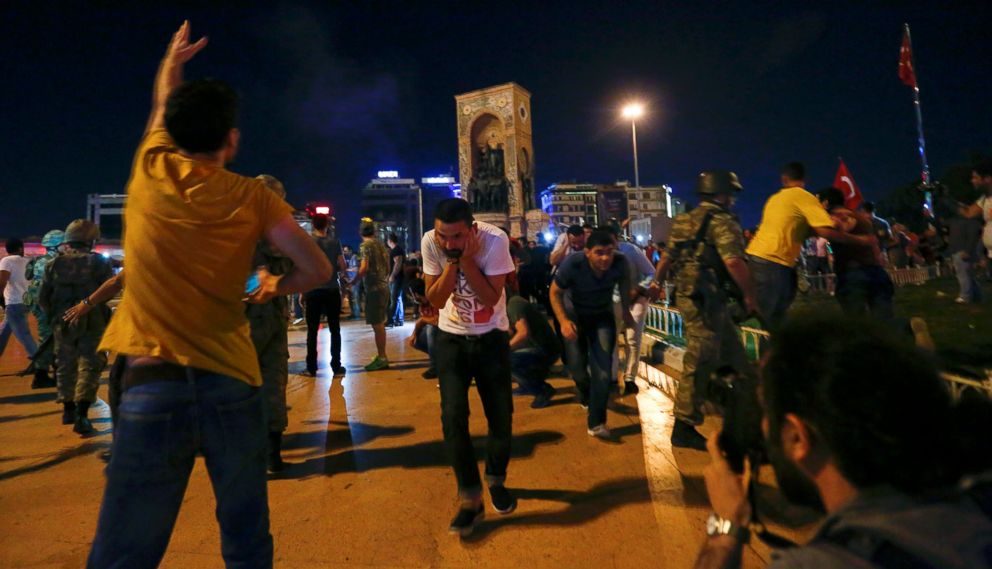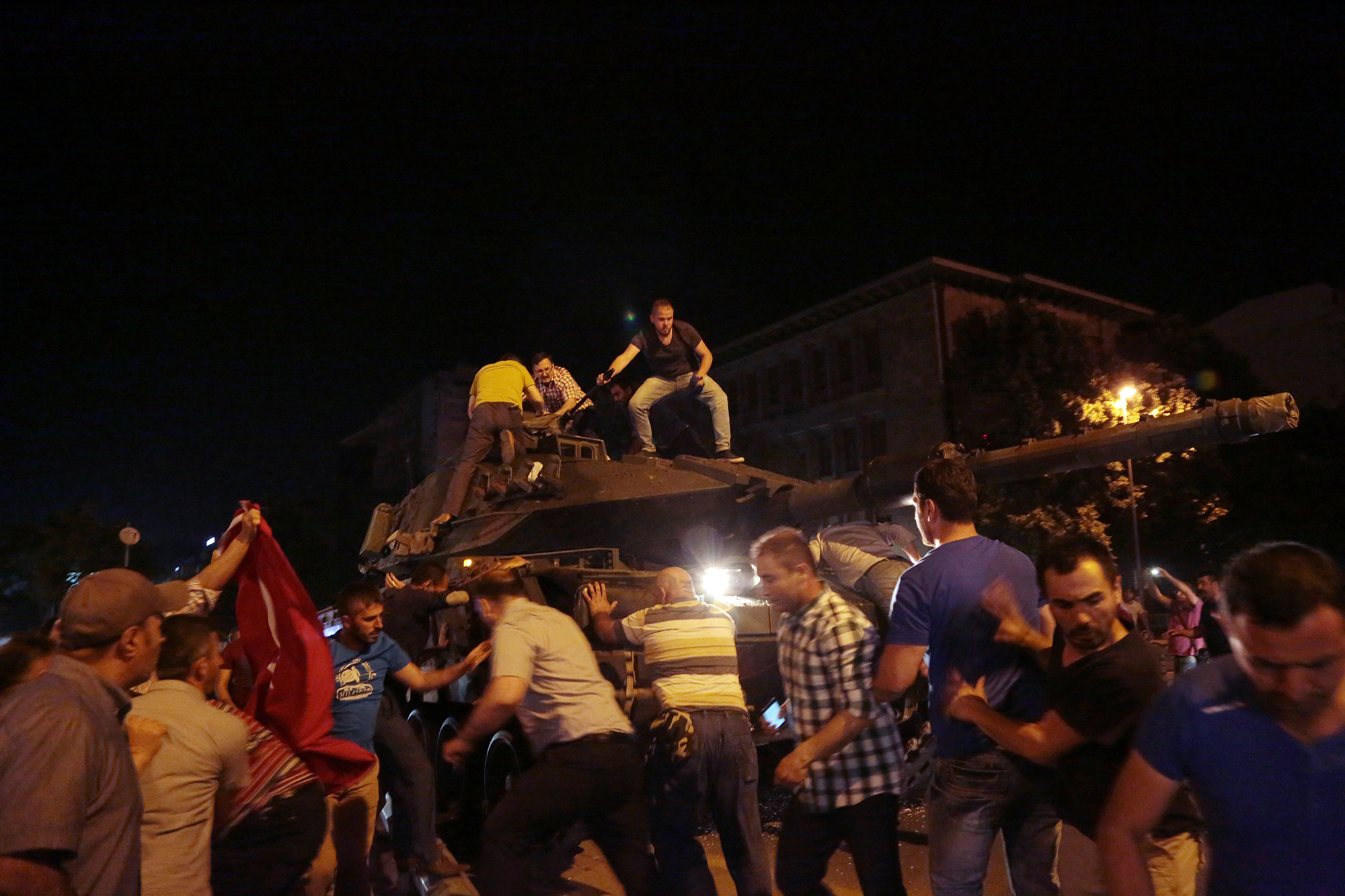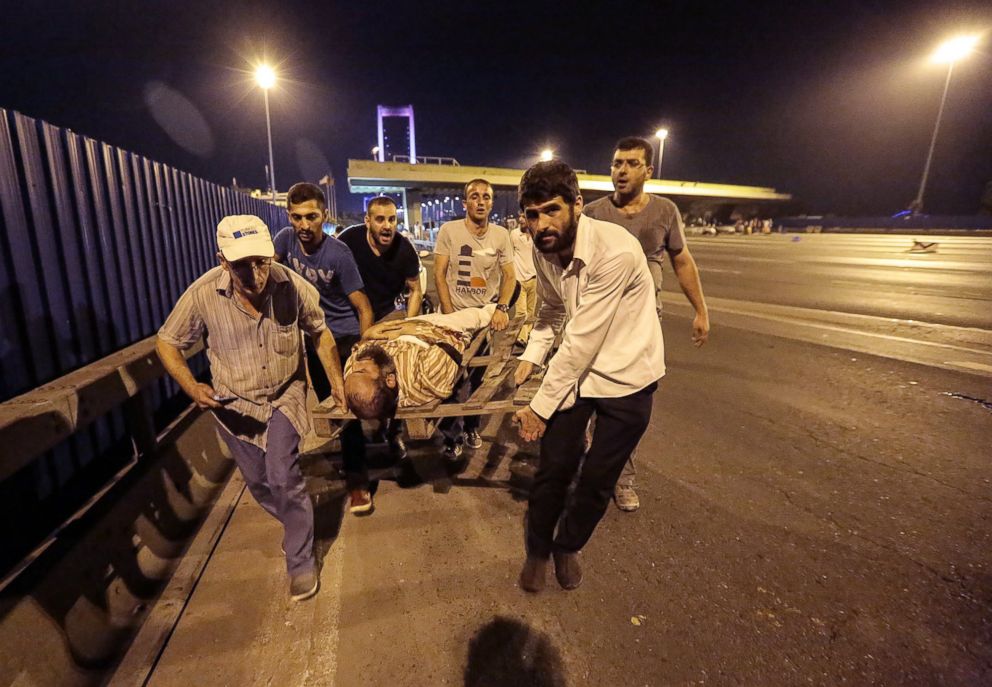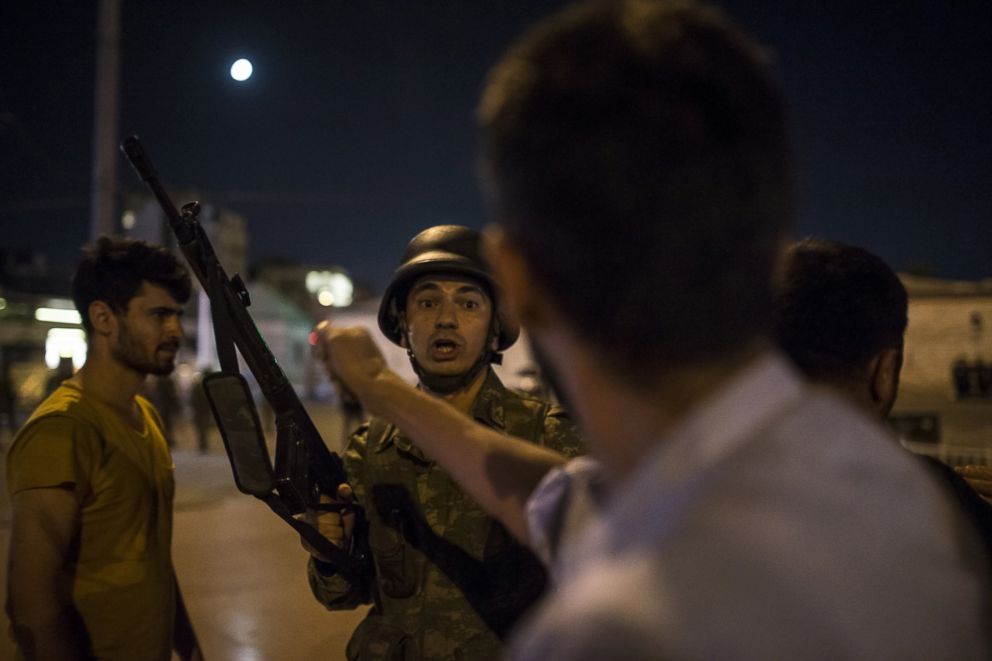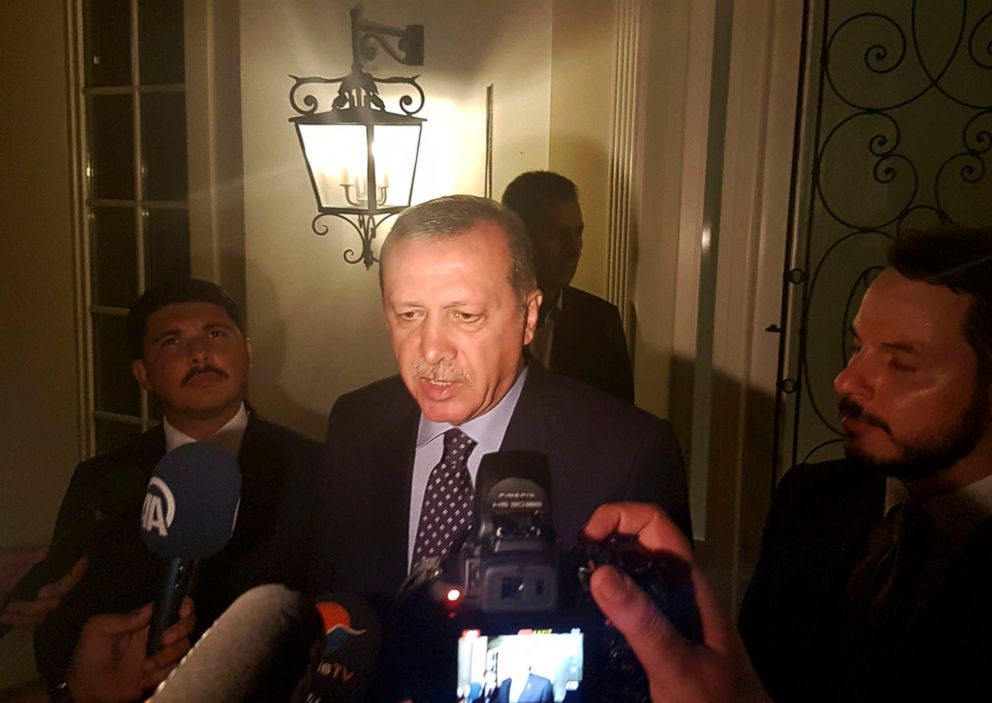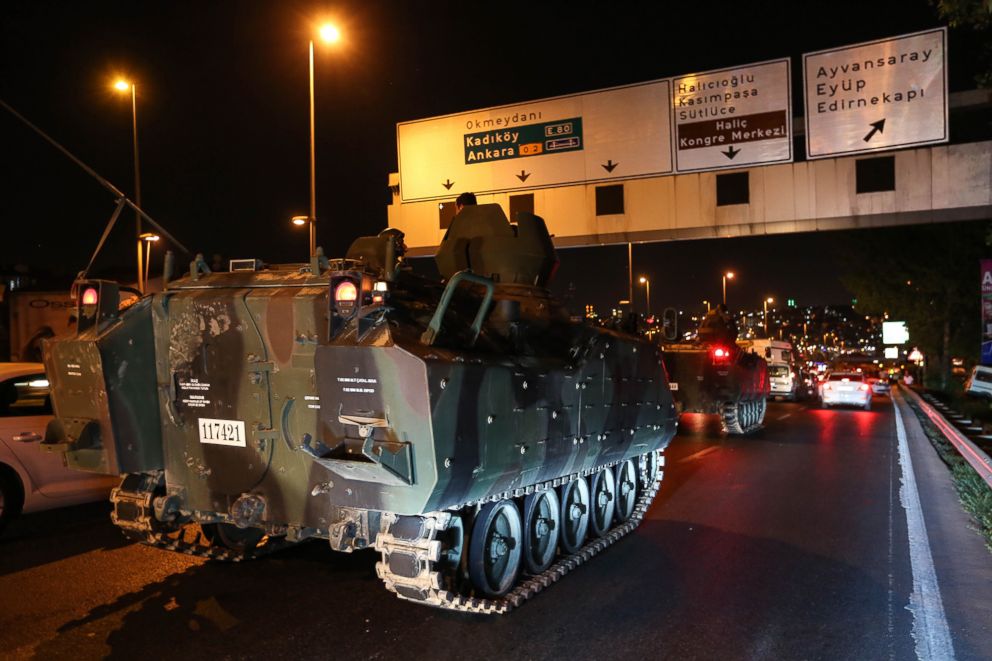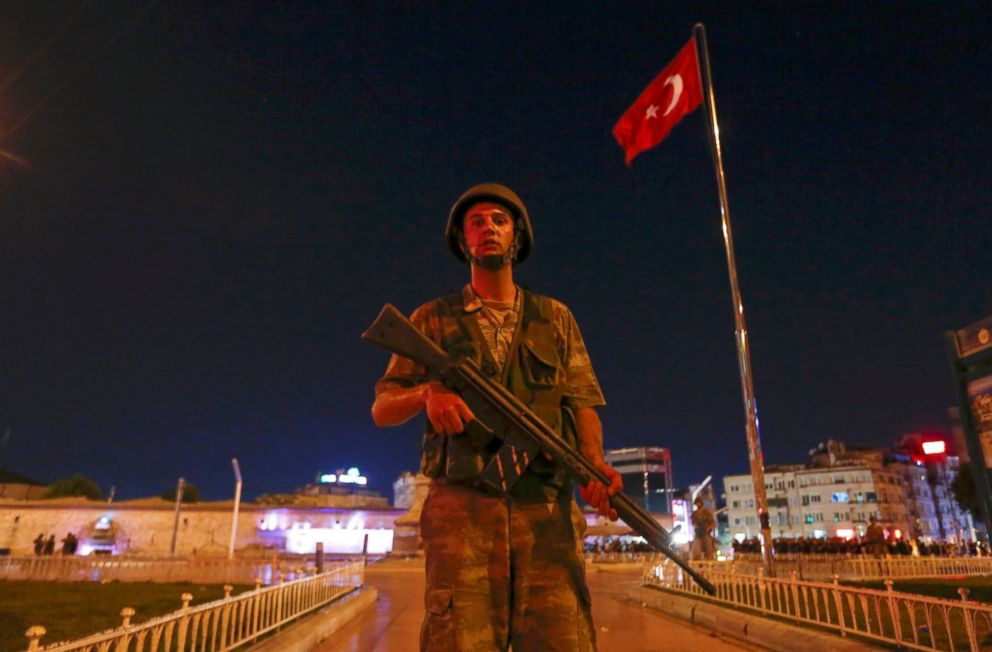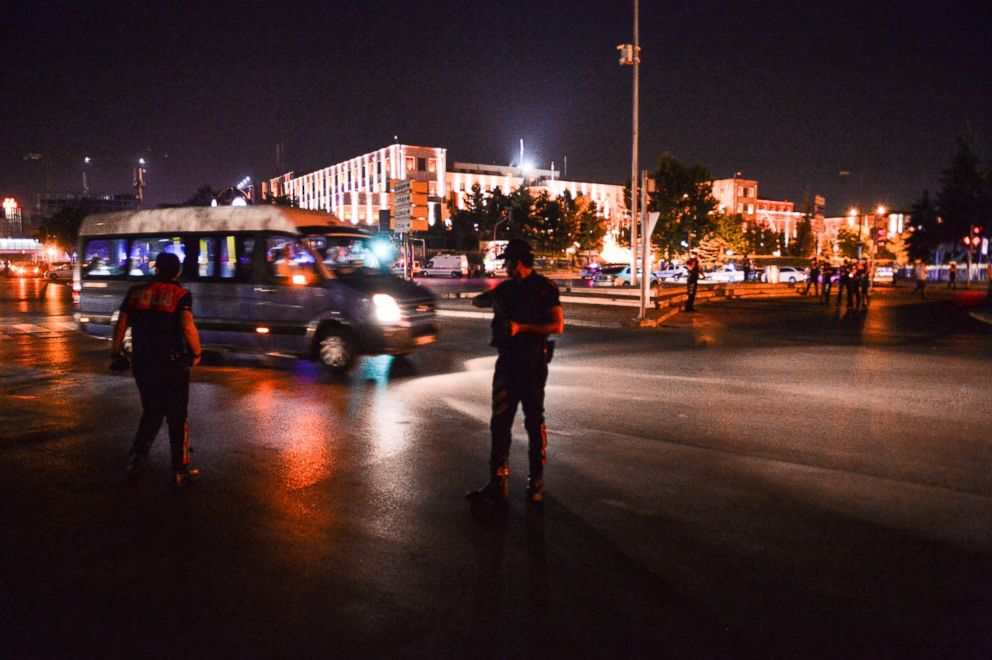Turkey Suspends Human Rights Treaty After Failed Coup Attempt
The country just instituted a state of emergency for three months.
— -- Turkish authorities have announced they will temporarily stop abiding by the European Convention on Human Rights, arguing that “during times of war or serious public emergency” countries can act outside their obligations as long as they do not violate international laws.
Turkey ratified the international treaty in 1954, and suspending it means the country will no longer have to follow its laws on torture, for example. In addition, some Turkish government officials have suggested reinstating the death penalty, which has led to criticism abroad.
This comes a day after President Recep Tayyip Erdogan said the country was implementing a state of emergency for three months following a failed coup last week.
At least 60,000 people, including members of the military, police, judges, civil servants and teachers, have been suspended or detained after Erdogan vowed that "all the viruses" will be "cleansed."
Dramatic Scenes From Turkey's Attempted Military Coup
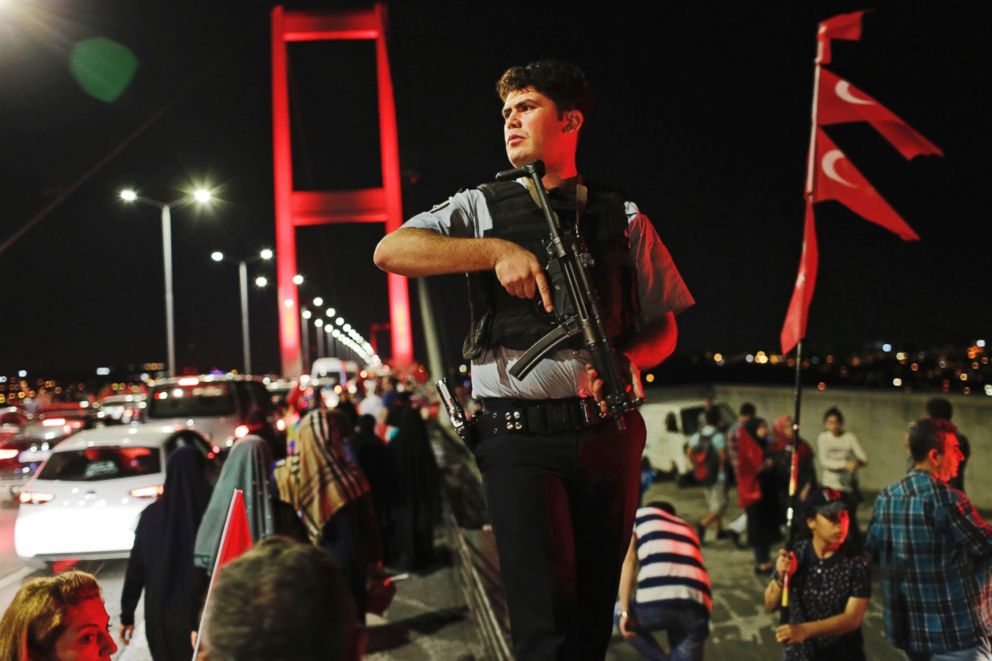
Zeid Ra’ad Al Hussein, the United Nations high commissioner for human rights, urged Turkey in a statement to "respond [to the coup] by upholding the rule of law, by strengthening the protection of human rights and by reinforcing democratic institutions."
He added: “In the aftermath of such a traumatic experience, it is particularly crucial to ensure that human rights are not squandered in the name of security and in the rush to punish those perceived to be responsible."
Zeid expressed concern that a large number of judges and prosecutors were suspended and stressed the importance of respecting the presumption of innocence, due process and fair trial guarantees.
The advocacy group Amnesty International said in a statement that it was "investigating reports that detainees in Ankara and Istanbul have been subjected to a series of abuses, including ill-treatment in custody and being denied access to lawyers."
“Those responsible for unlawful killings and other human rights abuses must be brought to justice, but cracking down on dissent and threatening to bring back the death penalty are not justice,” according to the statement.
Turkish politician Mehmet Simsek took to Twitter to assuage those who opposed the decision, pointing out that France also suspended the treaty after last year's terrorist attacks in Paris.
"The state of emergency in Turkey won't include restrictions on movement, gatherings and free press. It isn't martial law of 1990s," he tweeted. "I'm confident Turkey will come out of this with much stronger democracy, better functioning market economy & enhanced investment climate."
